- Home
- Dornford Yates
House That Berry Built
House That Berry Built Read online
Copyright & Information
The House That Berry Built
First published in 1945
© Estate of Dornford Yates; House of Stratus 1945-2011
All rights reserved. No part of this publication may be reproduced, stored in a retrieval system, or transmitted, in any form, or by any means (electronic, mechanical, photocopying, recording, or otherwise), without the prior permission of the publisher. Any person who does any unauthorised act in relation to this publication may be liable to criminal prosecution and civil claims for damages.
The right of Dornford Yates to be identified as the author of this work has been asserted.
This edition published in 2011 by House of Stratus, an imprint of
Stratus Books Ltd., Lisandra House, Fore Street, Looe,
Cornwall, PL13 1AD, UK.
Typeset by House of Stratus.
A catalogue record for this book is available from the British Library and the Library of Congress.
EAN ISBN Edition
1842329758 9781842329757 Print
0755126955 9780755126958 Kindle
0755127161 9780755127160 Epub
This is a fictional work and all characters are drawn from the author’s imagination.
Any resemblance or similarities to persons either living or dead are entirely coincidental.
www.houseofstratus.com
About the Author
Born ‘Cecil William Mercer’ into a middle class Victorian family with many Victorian skeletons in the closet, including the conviction for embezzlement from a law firm and subsequent suicide of his great-uncle, Yates’ parents somehow scraped together enough money to send him to Harrow.
The son of a solicitor, he at first could not seek a call to the Bar as he gained only a third class degree at Oxford. However, after a spell in a Solicitor’s office he managed to qualify and then practised as a Barrister, including an involvement in the Dr. Crippen Case, but whilst still finding time to contribute stories to the Windsor Magazine.
After the First World War, Yates gave up legal work in favour of writing, which had become his great passion, and completed some thirty books. These ranged from light-hearted farce to adventure thrillers. For the former, he created the ‘Berry’ books which established Yates’ reputation as a writer of witty, upper-crust romances. For the latter, he created the character Richard Chandos, who recounts the adventures of Jonah Mansel, a classic gentleman sleuth. As a consequence of his education and experience, Yates’ books feature the genteel life, a nostalgic glimpse at Edwardian decadence and a number of swindling solicitors.
In his hey day, and as testament to his fine writing, Dornford Yates’ work often featured in the bestseller list. Indeed, ‘Berry’ is one of the great comic creations of twentieth century fiction; the ‘Chandos’ titles also being successfully adapted for television. Along with Sapper and John Buchan, Yates dominated the adventure book market of the inter war years.
Finding the English climate utterly unbearable, Yates chose to live in the French Pyrenées for eighteen years, before moving on to Rhodesia (as was), where he died in 1960.
‘Mr Yates can be recommended to anyone who thinks the British take themselves too seriously.’ - Punch
‘We appreciate fine writing when we come across it, and a wit that is ageless united to a courtesy that is extinct’ - Cyril Connolly
Dedication
To the memory of my beloved terrier,
Tumble, to whom I owe so much.
1
In Which We Remove to the Hills,
and Berry Pulls His Weight
Standing by Berry’s shoulder, I threw a glance round the chamber I knew so well.
The book-lined walls, the chiselled mantelpiece; the original, elegant ceiling; the three, fair windows, whose upper lights were badged with coats of arms; the built-in reader’s stall, the little pulpit-staircase; the rugs and the summer cretonnes, the polished furniture; the tulips peering out of their Lowestoft bowls – I looked upon these things and found them valuable. So, I knew, did the others, but their eyes were upon the ground. Daphne was sitting back in an easy chair: Jill was perched on its arm – her hand, I knew, was in Daphne’s, holding it tight: Jonah was standing behind them, grave-faced with folded arms.
Lord Atlas looked at Berry, sitting behind the carved table, pencil in hand.
“As I see it, Major Pleydell, the exact position is this. When you and your cousins inherited White Ladies, the cost of maintaining the place as your father and his brother had maintained it was less than three thousand a year. Today it is nearly eight thousand – eight thousand pounds.”
Berry nodded.
“That’s right,” he said. “Very nearly three times as much. The average cost of maintenance for the last three years was seven thousand eight hundred and sixty pounds. That’s sparing no expense: but we never have spared expense where White Ladies was concerned.”
“Your books show that.” Lord Atlas cleared his throat. “And now the time has come when you and your cousins are really no longer able to find this very large sum.”
“I’m afraid that’s so. But I think that I should say this – that that sum does not include the salary of a controller or bailiff. My cousin, Captain Pleydell, and I have always done that work.”
“What would that come to?”
Berry shrugged his shoulders and looked at me.
“I think,” said I, “that a capable, faithful man would deserve six hundred a year and to live rent-free.”
“Shall we say eight thousand five hundred?”
“Yes,” said Berry, “ I think that that would be right.”
“Very well. In these circumstances, you and your cousins are willing to make White Ladies over to the nation, as it stands, with its gardens and park, to be used as an official retreat for the Secretary of State for Foreign Affairs, on condition that I endow it in perpetuity by handing to the trustees, of which you will be one, a capital sum which will bring in, free of tax, eight thousand five hundred a year.”
“Yes.”
“You stipulate that, except for maintenance and repair, the property shall never be touched, and that the four principal servants shall remain – the butler, as groom of the chambers; the house-keeper and head-gardener in their respective offices, and the chauffeur at the lodge.”
“Yes. Unless and until they may desire to retire upon pension, for which we shall be responsible.”
There was a little silence.
Then—
“D’you think,” said my sister, “there should be a little margin? I mean, we can’t see ahead; and if prices go on rising…”
Lord Atlas smiled.
“I think Mrs Pleydell is right. My idea was to transfer a sum which will bring in ten thousand a year – any surplus to be placed to reserve.”
“That’s very handsome of you.”
Lord Atlas inclined his head.
“I think the word ‘handsome’ must be reserved for you. I have a great deal more money than I can spend. But you are giving away your very beautiful home.”
In May, 1937, the Deeds had been signed and sealed.
This was, we hoped, the last of our misfortunes, for Fate had been rough with us for several years. More. Apart from calamities in which we had no say, we had been repeatedly confronted with the unpalatable task of choosing the lesser evil. In this, I think we succeeded; but the exercise was one of which we were growing tired. Of the more personal blows, I shall say nothing. Suffice it that we, who had been seven, were back to five; and when Jonah suggested that we should go right away and seek distraction in the heart of the Pyrénées, Jill spoke for us all by flinging her arms round his neck.
“This place,” said Ber
ry, “ministers to the mind. You can’t get away from that. When we left England, my soul was over at the knees. Now – well, I can’t say it’s leaping like a ram, but it is no longer decrepit.”
“That,” said I, “is the mountains. I’ve always—”
“No laxatives, please,” said Berry. “Once before—”
Protests from Daphne and Jill abbreviated the insult.
“You really are filthy,” said Daphne. “I don’t know about your soul; but your mind—”
“I know,” said her husband. “It’s like a dunghill – a thing that steams in the sun. But rich fruit burgeons thereon. That’s Nature. Take the melons you gur-nash twice a day. If you were to visit their birth-place—”
“It isn’t true,” shrieked Jill. “They’re most carefully grown in gardens near Angoulême. Katrine told me—”
“Farms, not gardens,” said Berry. “I always give full marks to the fellow who thought of that. ‘Farm’ sounds so warm and homely. It, so to speak, draws the sting. Oh, and talking of sewage…”
When order had been restored—
“The point,” said Berry, “which I was endeavouring to make was that we are no better than a lot of mugs. We reside in a hired villa at Pau – a house which has been not only constructed, but furnished in the worst of taste: it might be all right for a blind man who was bed-ridden, but it doesn’t exactly subscribe to the well-being of anyone whose eyes and whose hams still function normally.”
“That,” said Jonah, “is undeniable.”
“Very well. On four days out of five, with one consent, we drive a matter of thirty miles, in order to spend the day in this vicinity. Unless we are to fast until we get back, we must either take our lunch with us or pay a considerable sum of money for the privilege of eating a collation, as inferior as it is pretentious, in some inconveniently situated hotel. We, therefore, take our lunch with us. After a discussion which is invariably characterized by great bitterness, we select some high place upon which we can eat undisturbed, and we then proceed to lug hampers, cushions, rugs, sunshades, thermoi and two buckets of beer upon ice up a gradient that the Gadarene swine would have refused. We then devour this parody of a meal in attitudes not only of extreme discomfort but calculated to embarrass the entrails – a solemn thought. No sooner have we satisfied our cravings than we are faced with the fascinating duty of employing scraps of grease-paper to smear from our platters the traces of our feast, of burying the treasure thus won, and of sousing in some ravening torrent the cups and glasses which we are to use for tea. These are then embalmed in anybody’s napkin and restored to their hamper, which, though obviously containing less than when we started, has to be held together because it will not shut. After an hour or so of diversion, the same bestial rites are observed, in order that we may have tea: and by the time that function is over, if we are to sit down to dinner clothed and in our right minds, it is time to pack the car and drive our thirty odd miles back to the poisonous habitation in which we take our rest.
“Now, it’s hardly credible, but, as I have said, we do this four days out of five. With one consent. And we do it four days out of five, because we enjoy this neighbourhood. Well, even blue-based baboons do better than that. Where the sugarcane is sweetest, there their caravan rests.” He addressed his wife. “What about that villa you spoke of?”
“‘Spoke of’!” said Daphne indignantly. “Jill and I were all for it: but you turned it down.”
“I admit,” said Berry, “that my enthusiasm was not marked. The ‘usual offices’ were so, er, unusual. But, in the light of what I’ve suffered in the last ten days, I’ve been doing division sums. Two into five won’t go: but if—”
“That’s more than enough,” said Daphne. “Does this mean that, if it’s still going, you’re ready to take that house?”
“I’d consider it,” said Berry. “The thought of consuming my lunch sitting down in a chair…”
My sister rose to her feet.
“Come on, Boy,” she said. “If it hasn’t gone, we’ll take it. And that will be that.”
I followed my sister across the sloping meadow, handed her down the bank and into the Rolls.
As I let in the clutch—
“The bedrooms will do,” she observed, “but downstairs is rather bare. We’ll have to get some chairs and a sofa, or Berry will throw in his hand. We can always sell them again at the end of our time.”
“That was in my mind,” I said thoughtfully. “Then again, there’s the hot-water system… Oh, and what about ice? Will they deliver up here?”
“Now don’t say you’re going to rat.”
“I’m not, indeed,” I declared. “I’d put up with quite a lot to be staying up here. But your husband has large ideas; and when he declares that he is prepared to reduce them, you may be perfectly sure that any such reduction will be effected at somebody else’s expense. Take the ice, for instance. He’ll have his ice all right, even if it’s got to be fetched. But he won’t fetch it. Then, again, he’ll take all the hot water every day.”
“I don’t care,” said Daphne. “We may have to rough it a bit, but at the present moment I’d rather have a caravan here than a castle anywhere else. Berry’s perfectly right. This district is curiously healing. I don’t know why.”
I made no reply. The thought of sharing a caravan with my brother-in-law was precluding speech.
The villa for which we were bound was a modest house, five minutes’ walk from Lally, by the side of the mountain road that climbed to the hamlet of Besse. Had it been built upon the same mountainside – but ten minutes’ walk from Lally, instead of five, its site would have been incomparable, commanding mountains and valleys and league-long forests, laced with the flash of falls: but, though its view was restricted to the meadows which sloped to Lally and the woods in which that village was sunk, the outlook was very pleasing and the house was retired enough to be very quiet. It had been well built, and there were plenty of rooms, but the furniture was scanty and most austere. Still, a little, natural terrace, shaded by sweet-smelling limes, made a most charming pleasance upon which we could lunch and dine, and I would have suffered a much less convenient lodging for the pleasure of sleeping beneath the topless hills.
Well as we knew the mountains, the fifty square miles about Lally had always been for us the sweetest patch of all in a lovely quilt. Every kind of beauty lay in that zone – a rarer beauty than we could find elsewhere. I sometimes think that the fact of the matter was this – that thereabouts the ‘close-up’ never belied the promise the prospect made. Anyway, the tract drew us, as a magnet draws steel: and if ever we went elsewhere, we always were disappointed, because our surroundings fell short of the very lovely standard which Lally’s neighbourhood set.
As we flicked through Lally, I saw a caravan standing beside the petrol-pump. It was not a true caravan: it was something between a caravan and a car. For a couple, that way inclined, it looked a good thing to me. The owner, in shirt and shorts, was standing beside the vehicle, watching the petrol gauge. He did not look round as we passed, but his profile was vaguely familiar. I felt as though I had seen him somewhere before. Then we swung to the left, and down the narrow way to the old, stone bridge. Two minutes later, we reached the Villa Bel Air.
As we made to enter the hall—
“Madame,” said the hostess, “will excuse the state of the place. The workmen are in possession, and workmen know no law.”
“Workmen?” said my sister.
The good woman spread out her hands.
“Electricians and plumbers, Madame. But they have almost done. They install an electric heater to furnish baths. A refrigerator also.”
Daphne cried out.
“But that is marvellous. When I was here three weeks ago…”
“Madame, what will you? Indeed, it was Madame who taught me. To let a villa today, one must be up to date. The initial expense is fearful; but…”
We arranged to take possession in two days’ time.
For five people to take up residence at a villa, which stands some twenty-five miles from the nearest town, necessitates preparation, even in France: and when that villa is very simply found, odd stuff must be hired or purchased, if the tenants are to enjoy their occupation.
At breakfast the following morning, the final arrangements were made.
“The chairs and the sofa,” said Berry, “will be my concern.”
The rest of us stopped eating.
“Touch of the sun,” said Jonah. “He ought to have stayed in bed.”
Daphne stared upon her husband.
“D’you mean to say,” she said, “that you’re going to pull your weight?”
Berry frowned upon a slice of cold ham.
“Lesser souls,” he observed, “can select glass and napery, size up housemaids or order a packet of Vim: but to discover a comfortable chair in the Department of the Basses Pyrénées calls for a brilliance of intellect very seldom encountered and never recognized. Not that I relish the prospect of entering the premises of the average French upholsterer: what you can see from the pavement is quite bad enough for the heart: but there’s a good deal at stake. The blessing and the curse are set before us this day. If we choose the curse, for the next two months those exquisite post-prandial periods which French cooking alone can induce, will be defiled. More. It’s a matter of health. Nothing is so calculated to turn the stomach as to spend two hours after dinner writhing upon a squab which has been so framed as to call into play muscles which nobody but a rowing Blue knows that he has.”
“Well, don’t spend too much,” said Daphne. “We can sell them again, when we go, but we’re sure to be stung. And we’ve got to get them up there.”
“The thing is to find them,” said Berry, gloomily. “I’m not sure we shouldn’t do better to get some beds.”

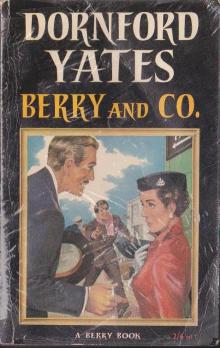 Berry and Co.
Berry and Co. Jonah and Co.
Jonah and Co.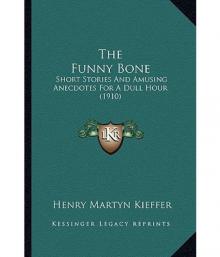 The Funny Bone: Short Stories and Amusing Anecdotes for a Dull Hour
The Funny Bone: Short Stories and Amusing Anecdotes for a Dull Hour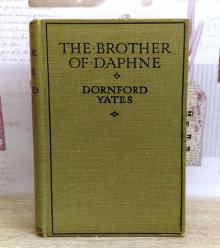 The Brother of Daphne
The Brother of Daphne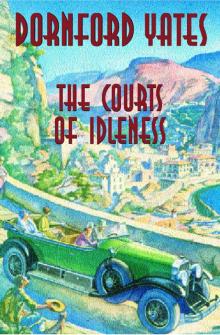 Courts of Idleness
Courts of Idleness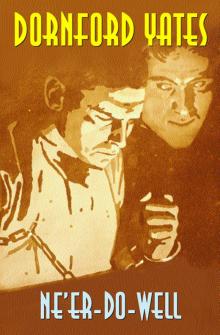 Ne'er Do Well
Ne'er Do Well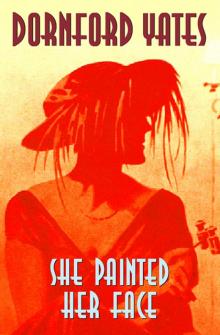 She Painted Her Face
She Painted Her Face Safe Custody and Laughing Bacchante
Safe Custody and Laughing Bacchante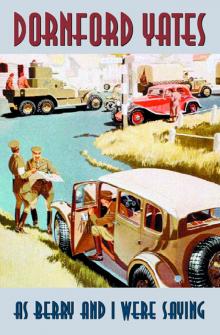 As Berry and I Were Saying
As Berry and I Were Saying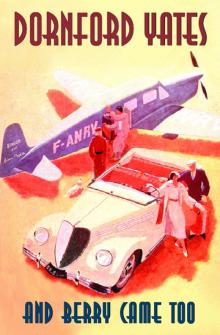 And Berry Came Too
And Berry Came Too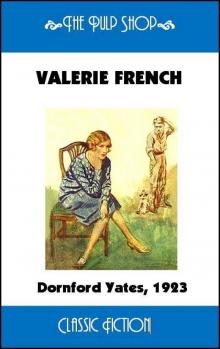 Valerie French (1923)
Valerie French (1923)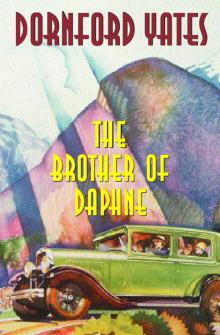 Brother of Daphne
Brother of Daphne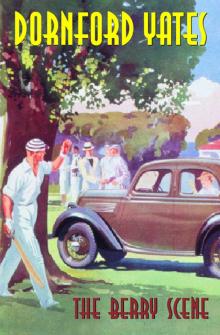 Berry Scene
Berry Scene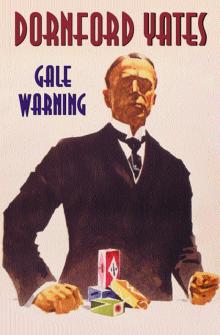 Gale Warning
Gale Warning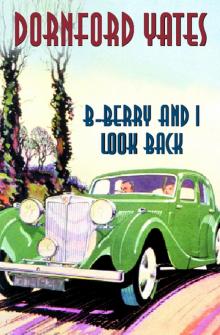 B-Berry and I Look Back
B-Berry and I Look Back Storm Music (1934)
Storm Music (1934)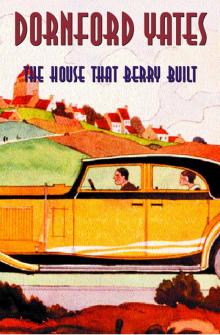 House That Berry Built
House That Berry Built